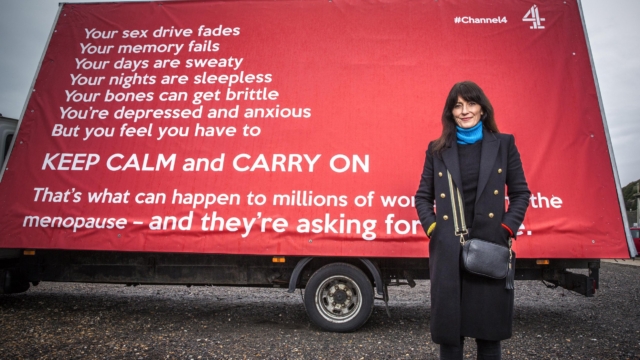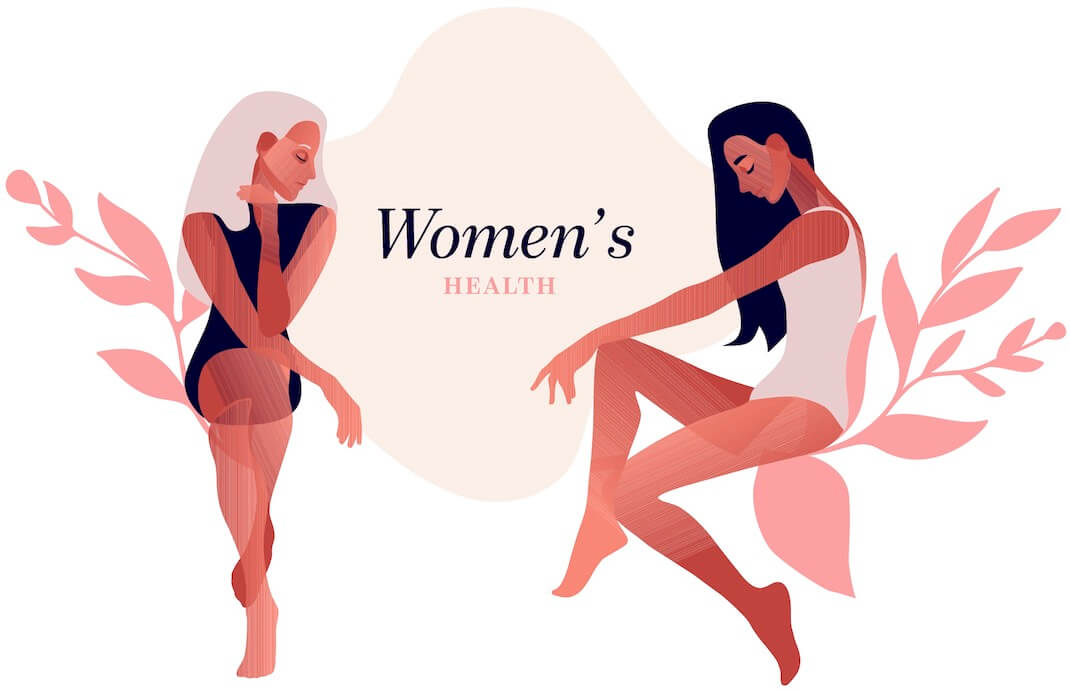5 Minute Read
Words by WYLDE MOON staff writer
Share this article…

Menopause used to be a taboo subject that was coyly, and unhelpfully, whispered about as ‘the change’. Not anymore.
Thank goodness that women from all walks of life finally feel free to openly discuss the emotional and physical effects the menopause has on them.
At the forefront of the conversation is Dr Louise Newson, GP and menopause expert. She has set up The Menopause Charity to put control of women’s bodies back in our hands and to educate employers and health professionals too. Rather than women feeling worried and isolated as their body adapts to change she wants to make us all informed and aware so we can get the support we need, if we need it.
As we mark World Menopause Day we thought we’d share some key insight from The Menopause Charity which had answers to many of the WYLDE MOON team’s questions and is a great place to go if you want to find out more.
1. What is perimenopause?
For most women, the menopause doesn’t happen overnight. Unless you’ve had a surgical menopause, your ovaries don’t suddenly stop working, they gradually slow down over a period of time. This transition period leading up to the menopause is known as the perimenopause, and can last for a few months or several years. The average is about four years.
During the perimenopause, you may notice your periods get lighter or irregular. You might also experience symptoms including hot flushes, mood swings, brain fog and fatigue. It’s common to start noticing these changes around the age of 45, but you might notice them earlier or later. Some women get symptoms in their 30’s or earlier. Don’t be surprised if it takes you a while to realise what’s happening – it’s easy to put them down to the everyday stresses of your busy life.
2. What is menopause?
Menopause refers to the time when you stop having periods and can no longer get pregnant naturally. This occurs because your ovaries stop producing eggs and, as a result, levels of the hormones they produce (oestrogen, progesterone and testosterone) fall.
3. What are the most common symptoms?
Hot flushes:
This is the most common symptom, which affects three out of four women. You might experience these as a sudden feeling of heat which spreads through your face, neck, chest and body. Some women also experience intense sweating, and it’s common to feel flushed, dizzy, or have heart palpitations at the same time.
Night sweats:
If you sometimes wake up drenched in sweat and need to change your pyjamas or bed sheets, then you’re experiencing night sweats. Like hot flushes, these are very common. Night sweats can disrupt your sleep, waking you up several times in the night, and causing chills as your body cools down.
Mood swings:
This is a common psychological symptom of the perimenopause. You might feel unusually irritable and quick to anger, frustrated, anxious or tearful.
Alternatively, you might feel flat and joyless – or all of these things, one after the other. You’re more likely to suffer from menopausal mood swings if you’ve experienced PMS or postnatal depression in the past. This is because your body is particularly sensitive to changing levels of hormones.
Problems sleeping:
There are lots of reasons why you might suffer from tiredness and insomnia, including night sweats, stress and anxiety. But if you’re having trouble falling or staying asleep, this could also be caused by low levels of the hormones progesterone and testosterone, which begin to drop during the perimenopause.
Brain fog:
We have hormone receptors in our brains so, when your oestrogen, progesterone and testosterone levels begin to fall, this can cause brain fog, forgetfulness and poor concentration.
4. How do I know I’ve officially hit the menopause?
You’ve officially reached menopause when you haven’t had a period for 12 months. After this point you enter post-menopause. Most women will have reached this stage by the age of 54, and symptoms like hot flushes and night sweats may begin to ease.
However, many women continue to experience menopause symptoms for around four years after their last period, and sometimes longer. You may notice new symptoms, such as trouble sleeping, low energy and vaginal dryness. If any of these are affecting your quality of life talk to your doctor as there are a range of treatments which can help.

The Menopause Charity has lots of information on what to do and how to cope with symptoms if you are struggling.
Share this article…





